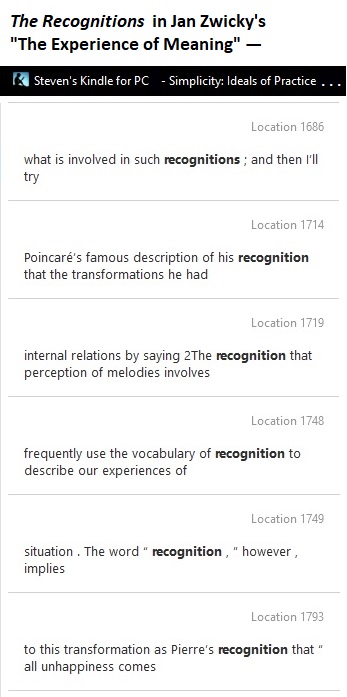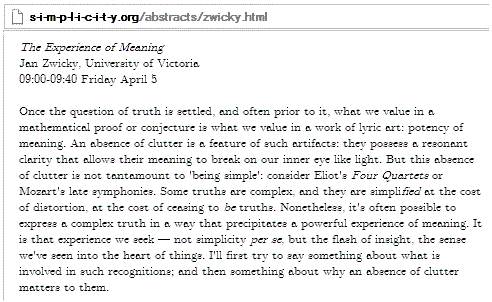|
Abstract for a talk at the City University of New York:
The Experience of Meaning Once the question of truth is settled, and often prior to it, what we value in a mathematical proof or conjecture is what we value in a work of lyric art: potency of meaning. An absence of clutter is a feature of such artifacts: they possess a resonant clarity that allows their meaning to break on our inner eye like light. But this absence of clutter is not tantamount to 'being simple': consider Eliot's Four Quartets or Mozart's late symphonies. Some truths are complex, and they are simplified at the cost of distortion, at the cost of ceasing to be truths. Nonetheless, it's often possible to express a complex truth in a way that precipitates a powerful experience of meaning. It is that experience we seek — not simplicity per se , but the flash of insight, the sense we've seen into the heart of things. I'll first try to say something about what is involved in such recognitions; and then something about why an absence of clutter matters to them. |
For some context, see posts tagged Artifacts.






